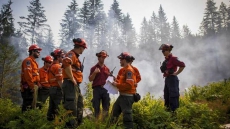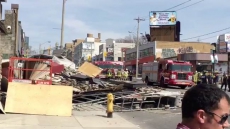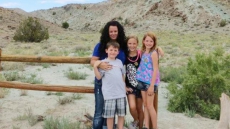EDMONTON — Alberta Premier Rachel Notley is the last NDP premier in Canada following the party's defeat in Manitoba's general election, but she says she doesn't view it that way.
"I like to see myself as not the last one standing but in fact the first in a new wave of NDP governments," said Notley in an interview Wednesday.
The Progressive Conservatives under Leader Brian Pallister trounced Manitoba Premier Greg Selinger's New Democrats on Tuesday, winning a majority government.
The win ended more than 16 consecutive years of NDP majority government.
A key factor cited for the loss was Selinger's decision to break a promise and increase the provincial sales tax.
That decision, made in 2013, led to a cabinet revolt and a brutish, divisive party leadership campaign that saw Selinger barely cling to the top job.
The NDP fell in the polls after the tax was hiked to eight per cent from seven and never recovered.
Notley congratulated Pallister on his win, saying the reasons for his victory are not complex.
"What happened in Manitoba, really, was that after 16 years of good service by the NDP, Manitobans do what Manitobans and most Canadians do, which is they change their government," she said.
"It is what it is."
Selinger announced he will step down as leader, and Notley said his impact will be missed, particularly at first ministers' meetings.
"Separate and apart from partisan politics, his institutional memory and his wisdom and his diplomacy was something that was pretty great," she said.

The echoes of Pallister's win could be heard in Alberta's legislature chamber in question period Wednesday.
Brian Jean, leader of the right-centre Opposition Wildrose party, told the house Pallister's win was both a triumph and a cautionary tale.
"It’s a lesson that voters won’t tolerate governments that are less than honest about their plans for tax hikes or who hide the full impact of those tax hikes from the electorate," said Jean.
"That’s what happened in Manitoba.
"Albertans see this happening right here with the NDP’s carbon tax that they didn’t campaign on and that we now have at a cost of a thousand dollars a year."
Alberta's carbon tax, introduced in last week's budget, will hike the cost of gasoline at the pumps and home heating bills to reduce Alberta's carbon footprint.
There will be full rebates to 60 per cent of Albertans — lower and middle-income earners — because they spend more of their income on such basics.
The government estimates the cost to families will be $508 a year by 2018, but the Wildrose counters the government has failed to consider secondary impacts should businesses and municipalities pass the carbon levy on to consumers and taxpayers.

Notley said Jean's $1,000 estimate was wrong, and said there's a larger principle at stake.
"This is an important issue that Albertans want to discuss," she told the house.
"They want us to make progress on reducing emissions."





